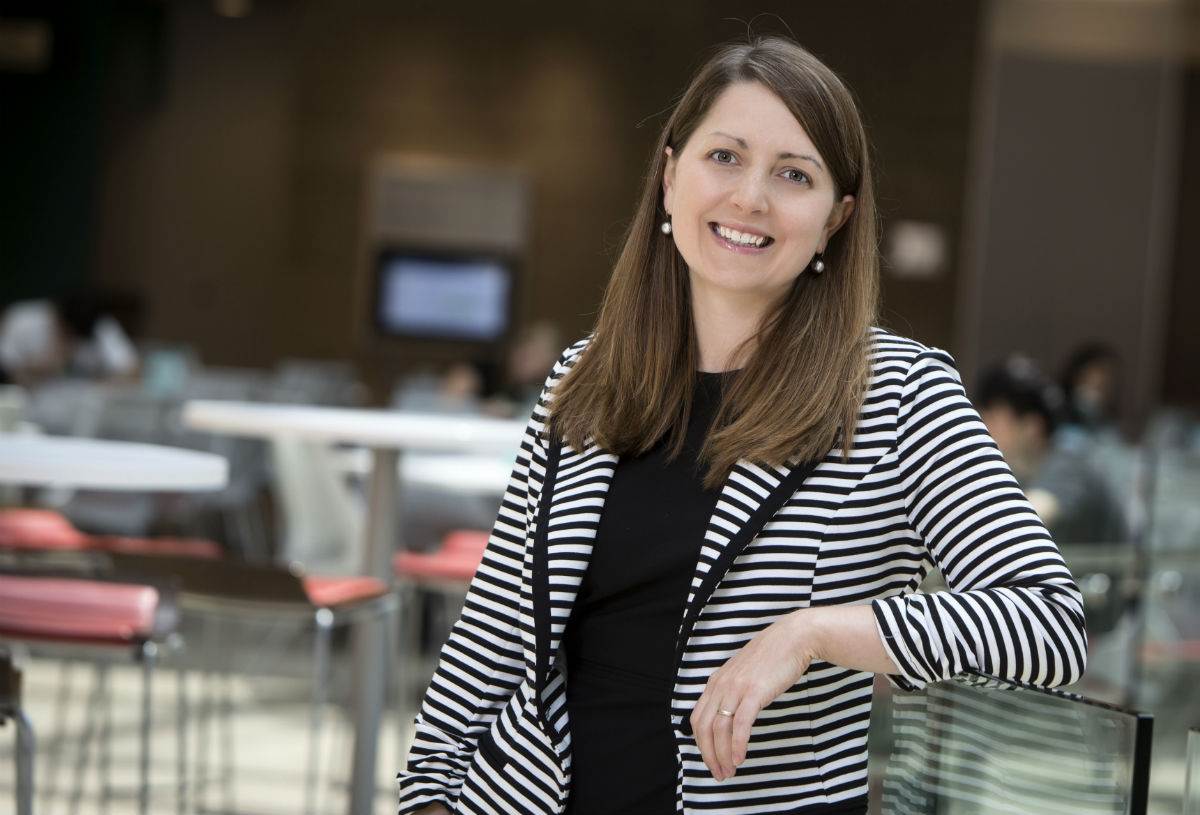Financial Awareness Day in a financially stressed-out world
- August 14, 2018
- By Molly Cruitt
- 4 minute read

It’s National Financial Awareness Day—and we see it as our duty to bring you the best financial and business-related news today and every day. So pull up a front-row seat to this exclusive, free personal finance training, brought to you by associate professor of marketing Cynthia Cryder.
Why it matters
It’s easy to think of financial awareness as something that’s best left to the experts – but Cryder, whose research on personal finance ranges from the psychology of debt to the practical details of how we spend money, says that’s a big mistake—and one that could cost you emotionally as well as financially. Though she’s an expert in consumer decision-making and personal finance, Cryder defines financial awareness as “being deliberate about your finances and making a plan.” That means staying one step ahead and being ready for the next major or minor disaster – because it’s going to come.
Cryder says being aware of your finances and having a plan to save, reduce debt, and think about the future is crucial because of the sheer nature of how we react to money. In fact, Cryder says people in the United States cite financial stress as more difficult on them than health, job, or any other kind of stressor.
“It seems like not having emergency savings is one of the most stressful things, because most families and individuals have a financial shock every year,” Cryder explained. So getting your finances in control and knowing where you stand is about more than counting checks—it’s about a happier, healthier you.
Rethink saving
One of the most frequent roadblocks Cryder finds to helping people become financially well is a misunderstanding of the nature of savings—and emergencies. “The idea that the only type of savings is for the distant future, like education or health savings,” does the consumer a disservice. That’s because emergency spending should be a top priority, according to Cryder.
Why do we have such trouble thinking of saving up for the short term? It has to do with the kinds of financial emergencies we face and the way we compartmentalize them. “We see isolated expenditures as just that: isolated,” said Cryder. “So we think that we’ll never have that financial shock or expenditure again. And that may be true, but we’re bad at then understanding that we are going to have another unusual type of isolated shock or expenditure.”
So when we rationalize that a car breakdown isn’t likely to happen again in the near future, we forget to save for things like a health emergency, or a home repair. Rethinking the likelihood of an “exceptional” event happening, and understanding that you’re going to face one each year, is one of the keys to being truly aware of your financial situation.
One step at a time
Once you’re aware of the state of your savings and you’ve decided it’s time to reduce financial stress in your life, Cryder suggests a few simple ways of moving toward stability.
First up: Figure out what needs to change. “It’s about deciding what is important to you as a person and as a consumer,” she says. Assuming your finances are stressing you out, you’ve got two options: make more money or spend less.
That might take the form of getting an extra job on the side, or taking in a roommate or two to help with expenses. Or it could be as simple as tracking your expenses for a month, seeing what adds up and what could be cut to make room.
While that might seem easier said than done, it’s a crucial decision to make if you want to get rid of financial stress. It’s also the key to steps two and three: pay down those debts and start an emergency fund.
When paying down debts, Cryder recommends starting with the most expensive—think payday loans, credit cards, and anything above 10 percent APR. While that might seem obvious at first glance, Cryder and her fellow researchers have found that many consumers are actually more likely to tackle the manageable, lower-interest rates first. “It’s not entirely obvious that people shouldn’t be doing this, because it’s possible that people get a great satisfaction from clearing something off their plate,” she said. But keep in mind: the longer you wait to pay down those expensive loans, the more debt you’re accruing.
Once your debt is under control, an emergency savings fund is a must. Thinking about spending crises, Cryder warns that “these things keep coming up—and we keep having to deal with them.” So putting away some money with the expectation that you’ll spend it on an emergency will make you better equipped to handle that situation when it happens.
Become the best you
At the end of the day, everything Cryder does is about the consumer. She believes the goal of financial awareness is to “improve consumer well-being.” She wants to help consumers “reduce financial stresses and improve outcomes in terms of finding a good match between how they’re spending their money and how they’re finding satisfaction in life.”
In short: a financially aware you means a happier, healthier, and more satisfied you—and making life safer, better, and more comfortable for everyone is what Cryder—and financial analysts—are all about.
Media inquiries
For assistance with media inquiries and to find faculty experts, please contact Washington University Marketing & Communications.
Monday–Friday, 8:30 to 5 p.m.
Sara Savat
Senior News Director, Business and Social Sciences
